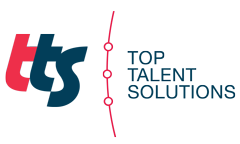In the past, the notion of an ideal remote worker profile was usually applied to selected employees who could work tele-presently, usually because of highly specialist functions. Of course, this has changed dramatically and most countries have now implemented lockdown regulations to slow the transmission of COVID-19.
The practical implication of this change for remote working is that most if not all employees of many industries now have to adapt to remote working.
So perhaps now more than ever, the competencies that are important for effectively working from home need to be identified and cultivated within the larger work force of any company.
Our remote worker research study
Faced with this new (and ubiquitous) virtual working environment, clients have asked us about what the ideal remote worker profile might look like. As a result, we undertook an investigation in partnership with a South African professional services firm to investigate this intriguing question.
48 staff members were invited to participate in a profiling exercise to identify the most critical competencies for effective remote working. Participants responded across two levels in the organization, namely professional services and support.
We used the Saville Wave Performance Culture Framework, a well-known and best-of-breed competency framework used by many of our clients.
The participants were asked to identify the competencies required, “To remain focused, productive and well-adjusted while working remotely for an extended period of time.”
Summary of results
The top three competencies identified by all staff members were:
- Managing Tasks. This competency references behaviors related to being organized and methodical, planning activities systematically and setting clear priorities.
- Meeting Timescales. A competency related to focusing on targets and meeting deadlines, being punctual and adhering to a schedule, as well as being reliable in finishing tasks.
- Producing Outputs. This competency describes being focused on working quickly, preferring being busy, and maintaining productivity.
Interestingly, significant differences were observed between the professional and support staff groups on a number of the competency importance ratings.
So, despite the brief being specifically not to think about the competencies required in your own job but rather the nature of remote working in general, there still appeared to be an influence on perceived requirements as a function of specific speciality.
When we analyzed the top-ranked competencies by functional group, we found that six of the top 10 competencies were shared across the professional services and support groups.
This suggests a shortlist of core critical competencies required for remote work, which are concerned with deliverables, upholding quality and standards, as well as resilience.
These competencies could be considered as universally important for employees who are working remotely. We list the universal and unique competencies in the table below:

The differences observed in the remaining four top ranked ranking competencies may reasonably be ascribed to differences in the nature of work in the two functions. This suggests that, even in our new virtual working environment, it remains important to consider role-specific requirements.
Final thoughts
The results of this study overlaps with similar research conducted by our product partners and also aligns with best practices we apply to our work with our clients. For instance, the emergence of unique competencies aligns with our standing position that one should consider both both contextual aspects (such as the virtual working environment) as well as role-specific requirements when thinking about talent and match-to-requirement.
As countries slowly start reopening, many organizations will continue to operate virtually to protect their staff and customers. Therefore, large-scale remote working is likely here to stay for the foreseeable future.
Organizations may be able to provide more support to their employees in these uncertain times by offering targeted development suggestions for the core remote working competencies identified in this research. This will no doubt enhance not only employees’ capability to continue operating effectively but also increase the employer’s value proposition to its top talent.
If you would like to know more about this research, or are interested to audit your organization’s remote worker bench-strength, contact us at: info@tts-talent.com.


